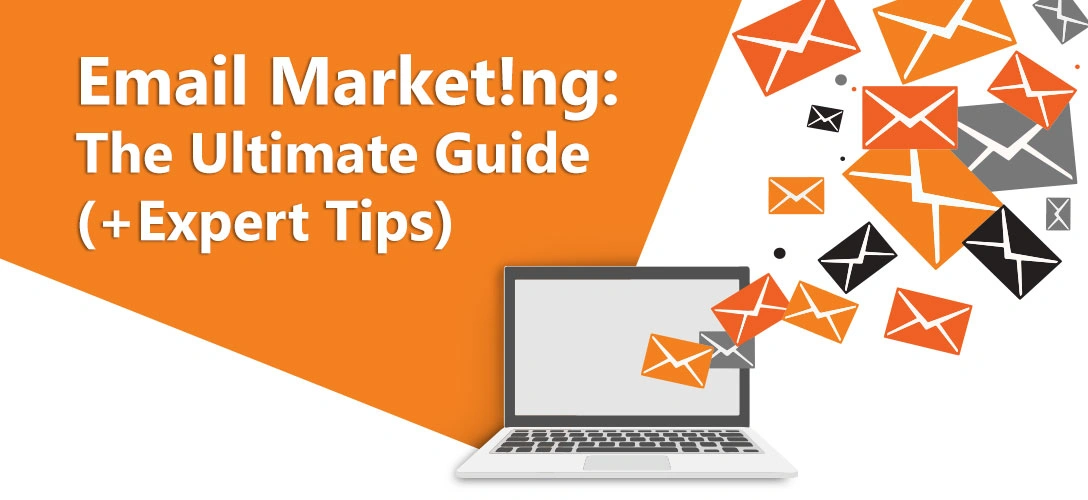Introduction to Email Marketing
In today’s digital landscape, establishing a meaningful connection with your audience is more important than ever for business success. Email marketing is a strategy that has remained relevant because of its personal, direct nature. Unlike other marketing channels, email allows businesses to communicate one-on-one with their audience, fostering trust and encouraging engagement that leads to real results. Whether you’re a small business or a global brand, understanding how to use email marketing effectively can help you deliver the right message to the right people at the right time. In this guide, we’ll dive into how email marketing works, different types of campaigns, and the benefits and drawbacks to help you determine if it’s the right strategy for you.
What is Email Marketing?
Email marketing is the practice of sending tailored, targeted messages to a selected audience via email. It’s a strategy used to build relationships, promote products or services, and keep audiences engaged. Unlike traditional advertising, email marketing provides a unique opportunity for personalization and connection, making it an ideal channel to nurture and grow customer relationships.
Types of Email Marketing
There are several different types of email marketing campaigns, each suited to a specific purpose. Some of the most common types include:
-
Newsletters
These regular updates provide subscribers with company news, blog content, or product highlights to keep them informed and engaged.
-
Promotional Emails
Often used to share exclusive discounts, special offers, or product launches to encourage immediate action.
-
Transactional Emails
Sent automatically based on a user’s action, such as a purchase confirmation, shipping notification, or password reset.
-
Welcome Emails
Sent to new subscribers as an introduction to the brand, often highlighting top products or useful information.
-
Re-engagement Emails
Designed to reconnect with inactive subscribers, these emails often include offers or updates to rekindle interest.
-
Behavioral or Triggered Emails
Based on user actions, such as browsing a product page or abandoning a cart, these emails remind users of their interest in your brand.
There are several different types of email marketing campaigns, each suited to a specific purpose. Some of the most common types include:
Email Marketing How It Works
To understand how email marketing works, it’s helpful to look at the steps involved in building and running a successful campaign:
-
Building an Email List : The first step in any email marketing campaign is to create a list of people who want to receive updates. This can be achieved through sign-up forms on your website, incentives like discounts, or through social media.
-
Segmenting the Audience : To ensure your message is relevant, segment your list based on demographics, past purchases, or engagement levels to tailor your content.
-
Creating the Content : Crafting engaging, valuable content is essential. This includes an attention-grabbing subject line, informative body content, and a clear call-to-action to encourage recipients to engage.
-
Automating the Campaign : Email marketing software allows you to automate emails, scheduling them for optimal times or setting triggers based on user actions, ensuring your communications are timely and relevant.
-
Analyzing the Results : After sending, reviewing metrics like open rates, click-through rates, and conversion rates helps you understand what’s working and where improvements can be made.
-
Point-of-Purchase Displays : These are positioned near retail locations, such as rural markets, helping drive last-minute purchase decisions.
By following these steps in email marketing, businesses can create customized campaigns that resonate with their audience and improve engagement.
What Are the Benefits of Email Marketing?
Businesses choose email marketing because of its unique advantages, which include:
-
Cost-Effectiveness : Email marketing is generally more affordable than other channels, allowing businesses to reach large audiences at a low cost.
-
Direct Communication : Email allows brands to speak directly to customers, which helps build trust and enhance loyalty.
-
Measurable Outcomes : Most email marketing tools provide analytics that let you see exactly how your campaigns are performing.
-
Personalization : With email, you can deliver customized messages based on subscribers’ interests or behaviors, improving the relevance of your content.
-
Boosted Brand Awareness : Consistent, high-value communication keeps your brand at the top of your audience’s mind.
Advantages and Disadvantages of Email Marketing
While email marketing offers numerous benefits, it also has some limitations. Here’s a quick look at both:
Advantages:
-
High return on investment due to low cost and high engagement.
-
Allows for direct, personalized communication with customers.
-
Scalable and easy to automate.
-
Provides measurable results through detailed analytics.
Disadvantages:
-
Requires consistent list maintenance to ensure your contacts are active and engaged.
-
Emails can end up in spam folders if not properly crafted or if the content lacks relevance.
-
Demands time and effort to produce quality content and optimize campaigns.
Getting Started with Email Marketing
If you’re new to email marketing, starting with a clear plan is essential. Define what you want to achieve, understand your target audience, and choose an email marketing platform that fits your needs. Once you have the foundation, experiment with different types of emails, test content, and adjust based on what resonates best with your audience.
Conclusion
Email marketing remains a foundational tool in digital marketing due to its direct, personal approach and its potential for high ROI. Whether it’s a newsletter, promotional email, or a re-engagement campaign, email marketing keeps businesses connected to their audience at every step of the customer journey. By learning about the different types of email marketing and following effective steps in setting up campaigns, businesses can provide valuable content that subscribers want to receive. Although email marketing has its challenges, the benefits often make it a worthwhile investment when executed thoughtfully. With a strategic approach, email marketing can help grow customer loyalty, increase brand visibility, and drive business success.

